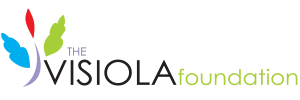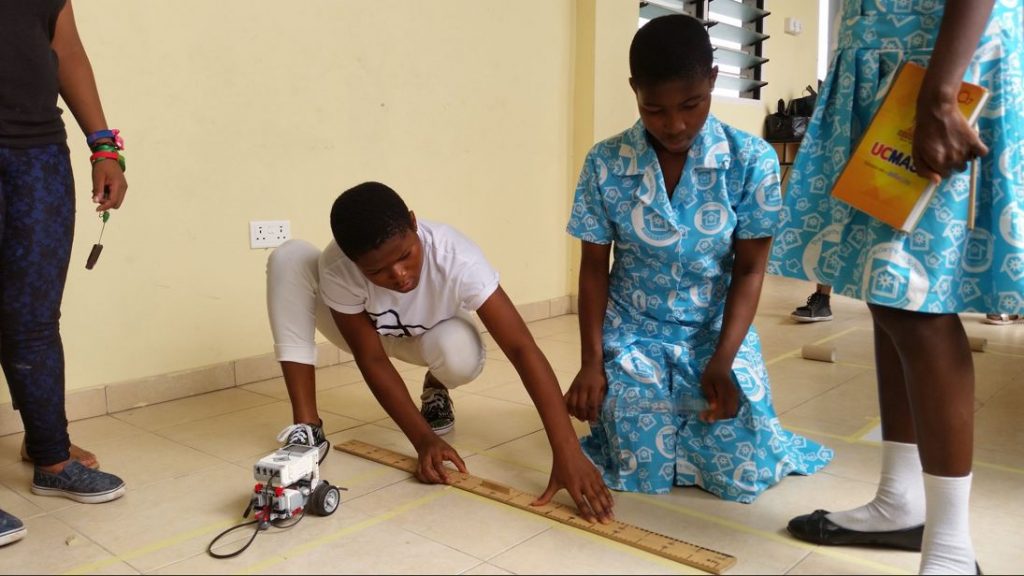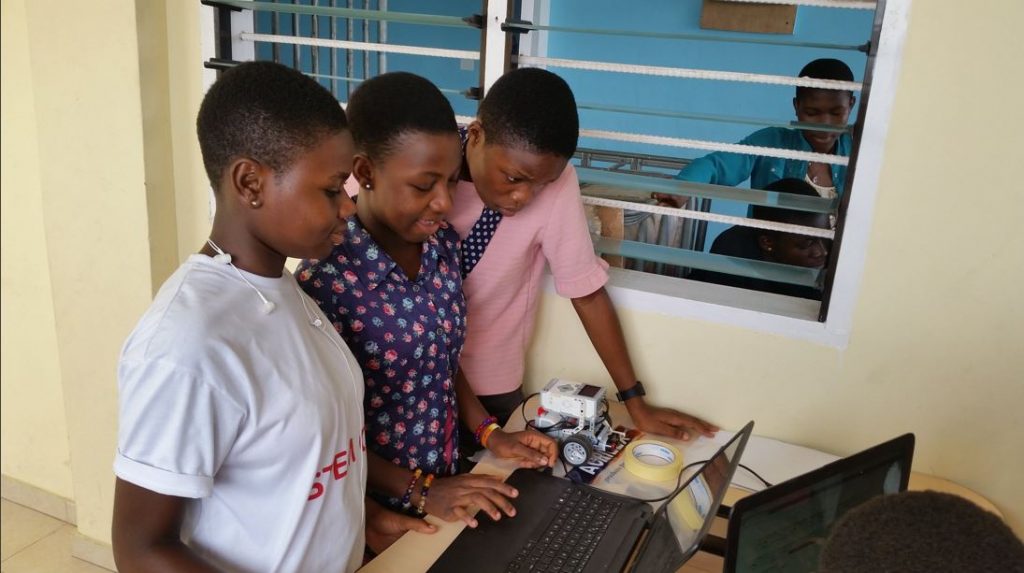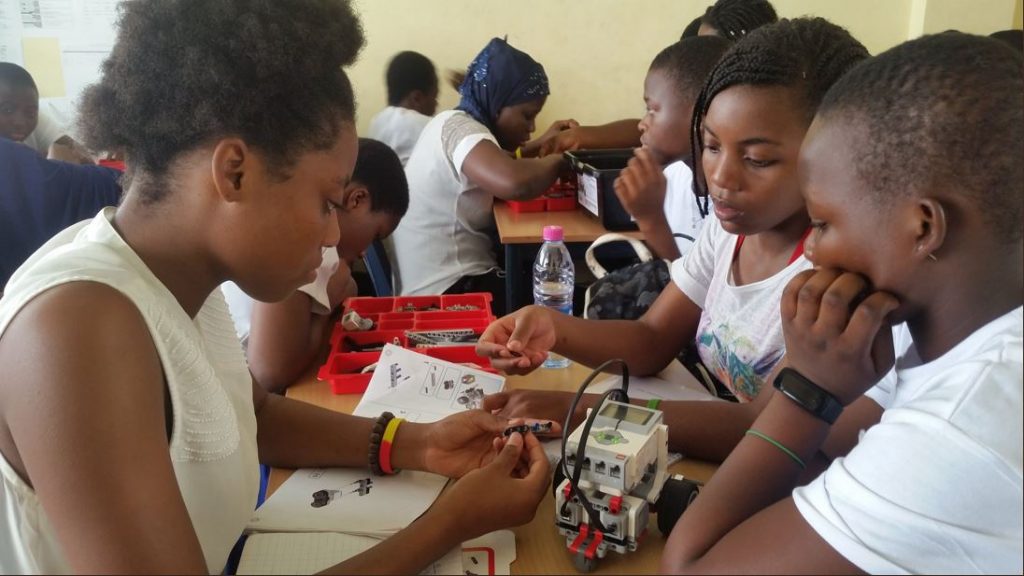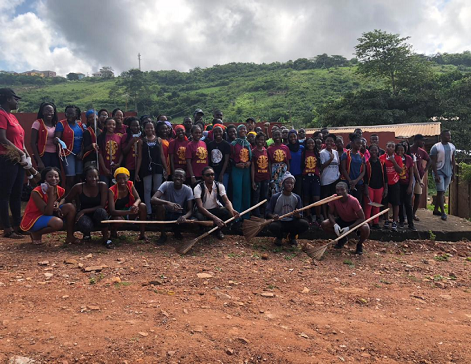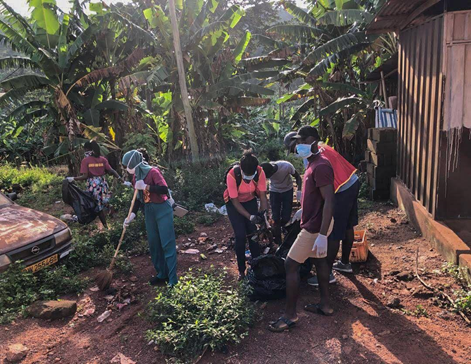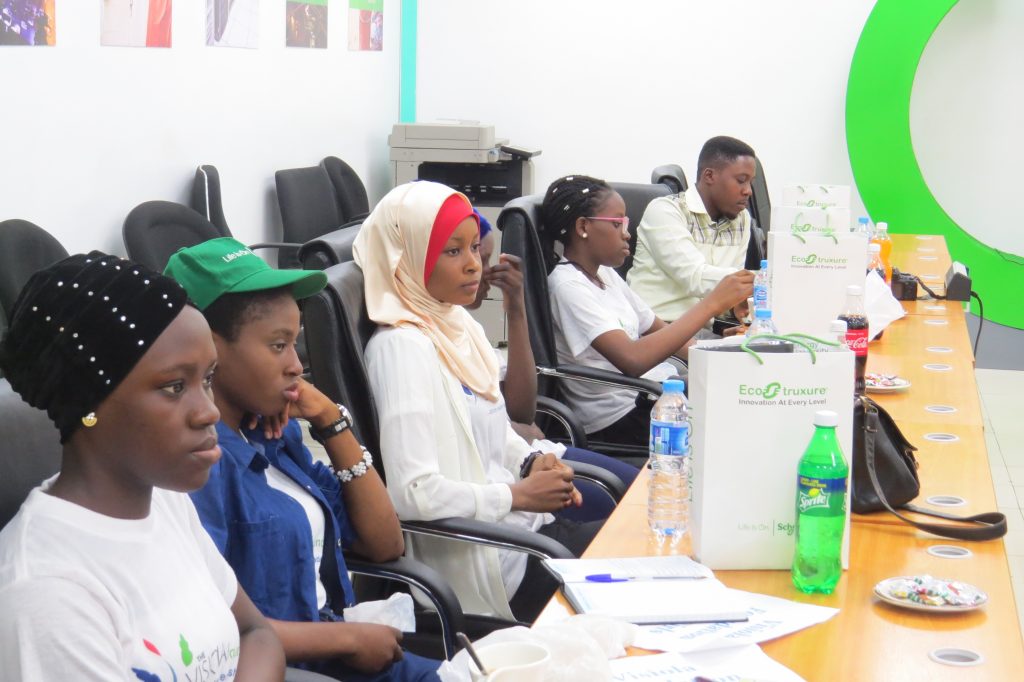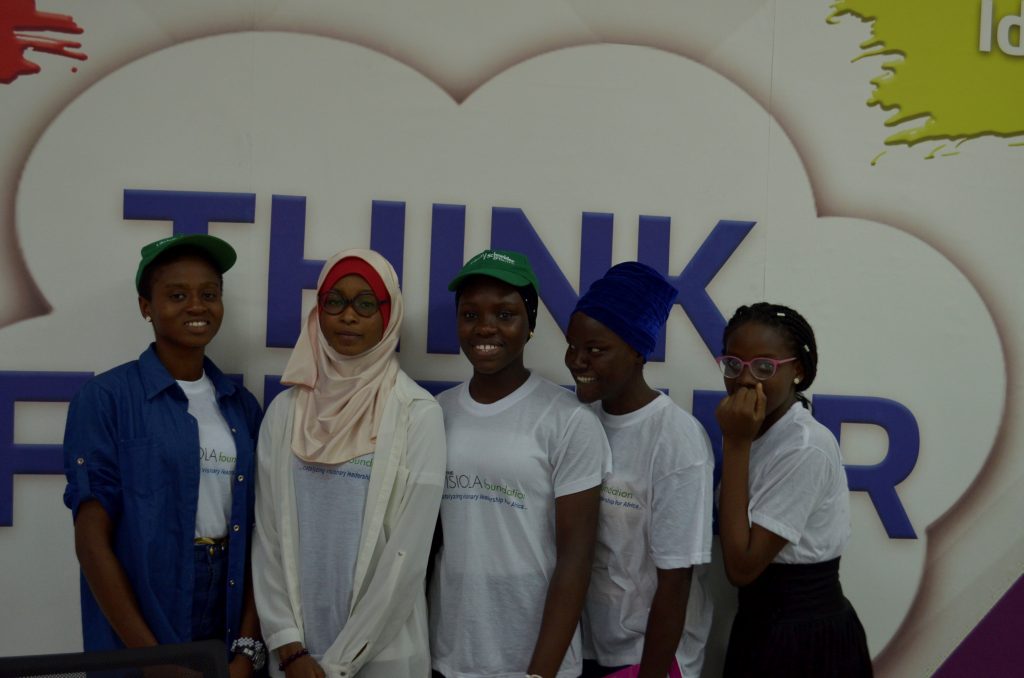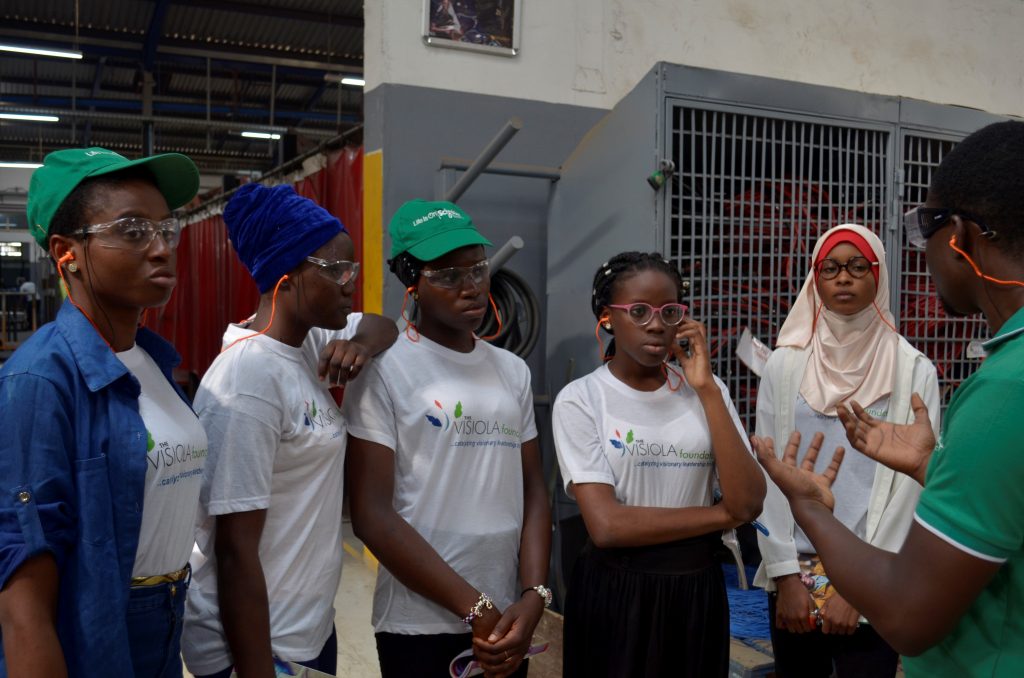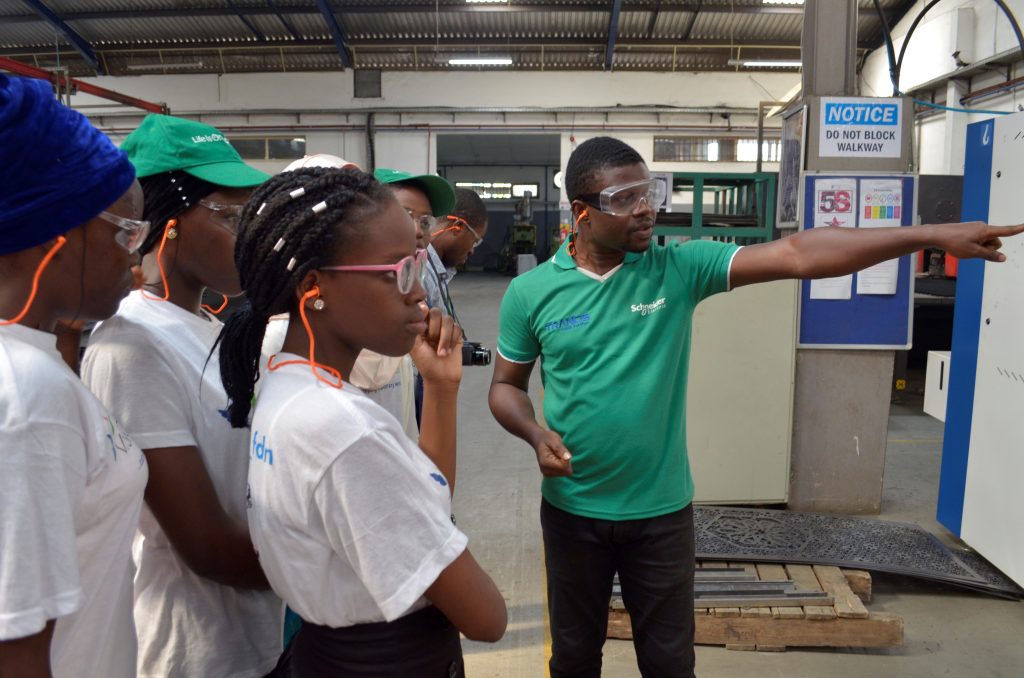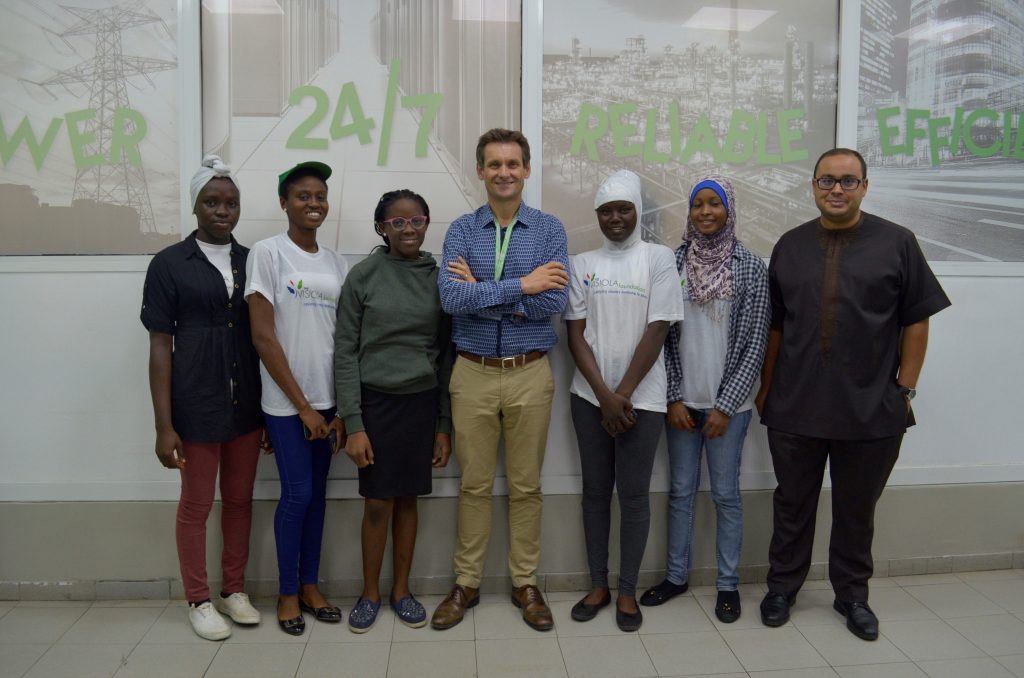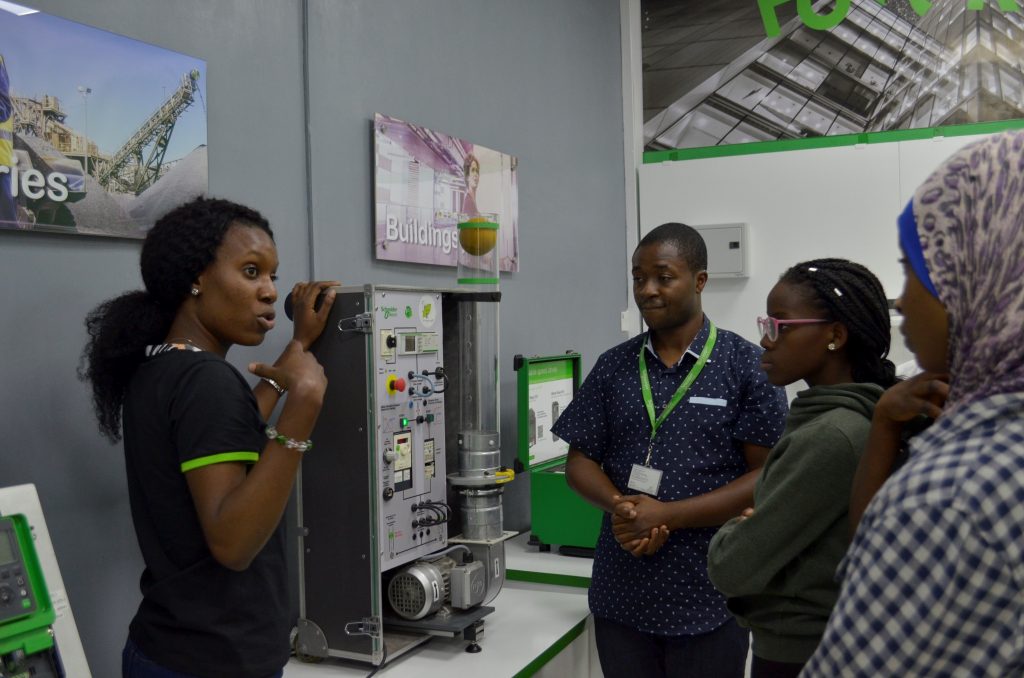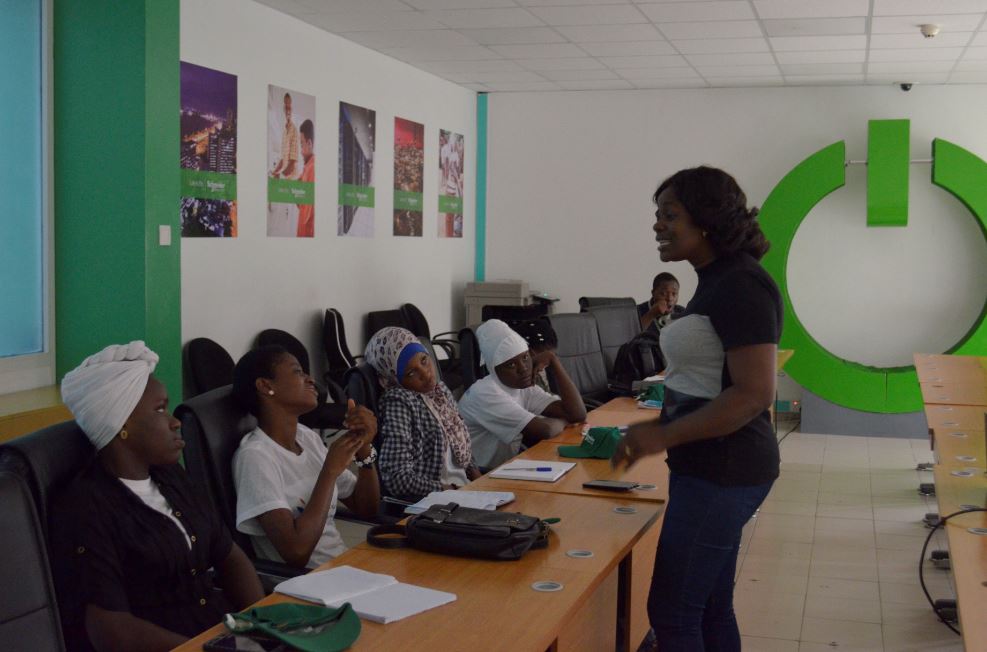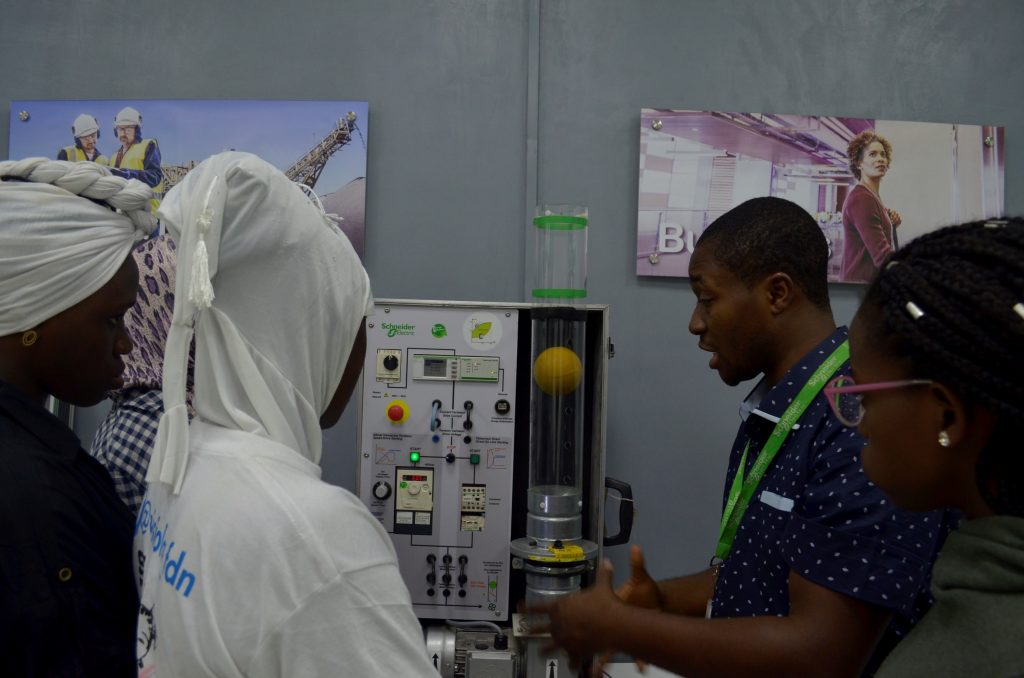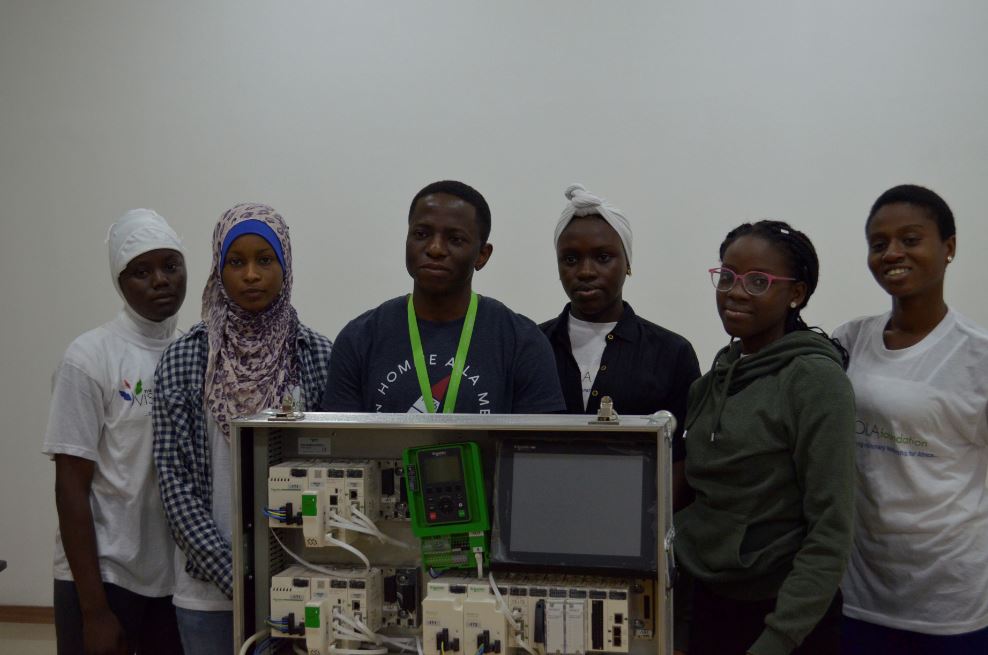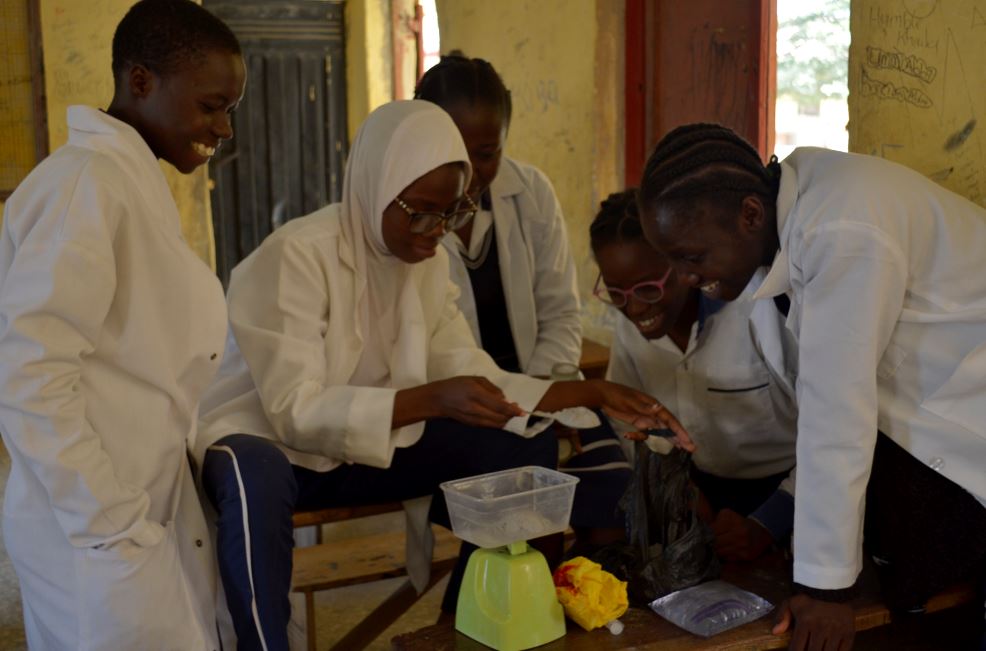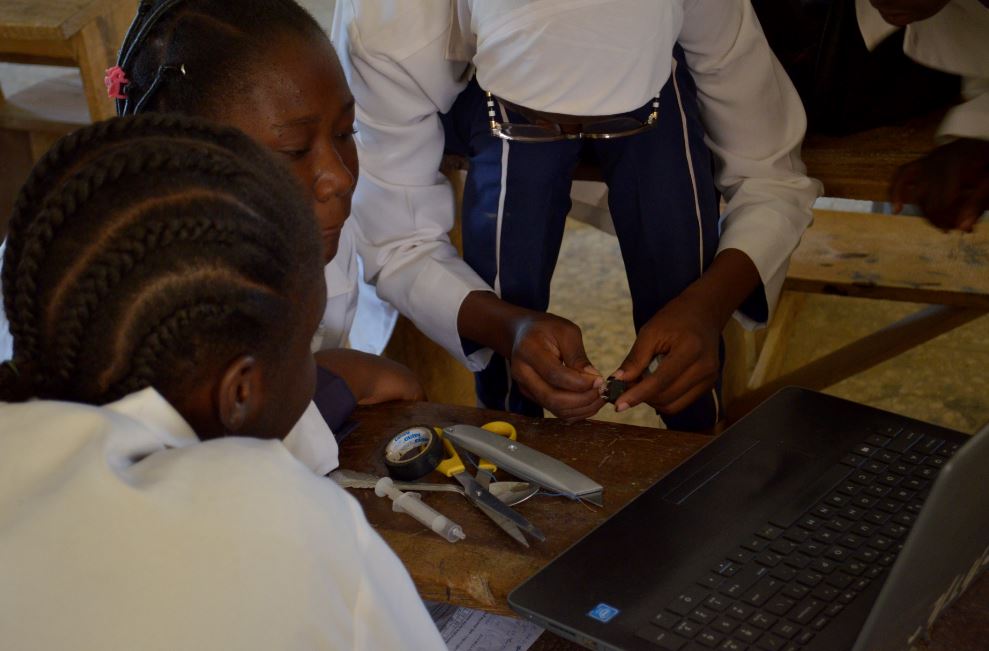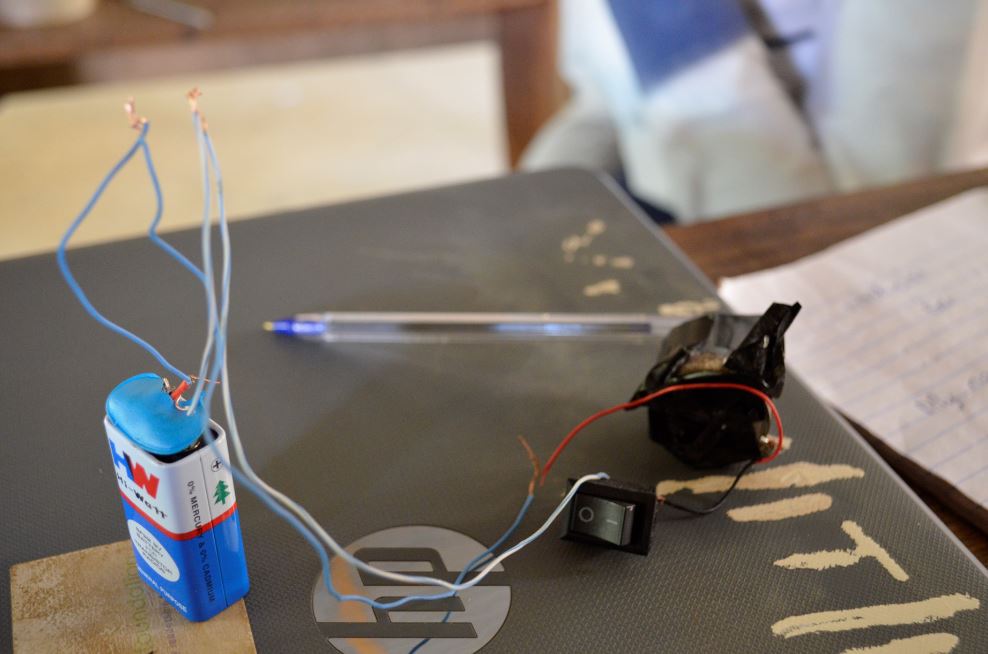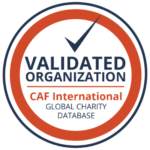the visiola foundation e-newsletter
Issue Q4, 2018
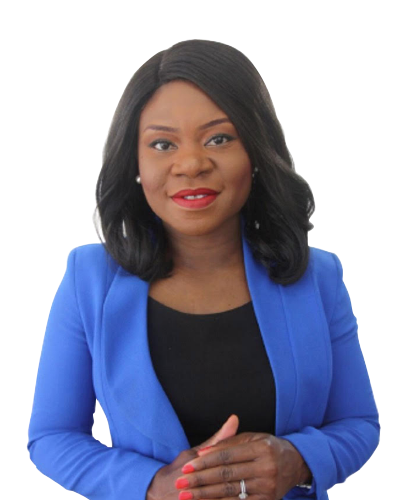
Ladé Araba
Founder and President of the Visiola Foundation
Founders' Corner
“Over the next 10 to 15 years, the adoption of automation and artificial intelligence technologies will transform the workplace, as people increasingly interact with ever smarter machines. These technologies, and that human-machine interaction, will bring numerous benefits, in the form of higher economic growth, improved corporate performance, and new prosperity. Technical innovation brought about shifts in skills needed in the workplace long before the advent of today’s automation technologies. During the Industrial Revolution in Europe and the United States in the early 19th century, the steam engine and other technologies raised the productivity of workers with primarily basic manual skills, enabling them to undertake work that had previously been done by high-skill and high-paid laborers, including master weavers and other artisans. In our era, computers and robots have had the opposite effect, increasing the productivity and complementing the work of high-skill workers, even as they substitute for the routine tasks previously undertaken by low-skill workers, such as those working on assembly lines or as switchboard operators.” – McKinsey Global Institute (2018)
Our vision at the Visiola Foundation is the emergence of a new generation of African leaders who will usher in transformational prosperity by leveraging the intellectual rigor, ethical leadership and technical expertise that underpin the science, technology, engineering, and math (STEM) fields. These leaders will primarily comprise women, who remain significantly underrepresented and who are, in many cases, absent from the decision-making tables. Our intent is to provide them, from a young age, a platform to unleash their curiosity and a conduit to utilise their skills to address the issues they witness on a regular basis. It was this thinking that informed our 360-Degree Developmental Learning Model; which is founded on three pillars:
1. Academics (Theoretical Instruction): All our programs seek to bridge the knowledge gaps in technical subjects in public schools, while building critical thinking, problem solving, imagination, teamwork, and public speaking skills in the students. For instance, our Robotics, Electronics, and Mechanics curricula further simplify concepts such as energy, electricity, and the Pythagorean Theorem to improve the students’ understanding.
2. Practical (Experiential) Learning: We incorporate practical activities, through laboratory-based experiments, individual and group projects, as well as assignments that require students to build solutions to simulated challenges in order to deepen their understanding of the applications of foundational principles. We find that too many students are fixated on memorizing theories that they do not understand and whose application is a mystery to them. By allowing them to apply the knowledge, we ensure that they move beyond rote memorization to critical thinking. For instance, in our Robotics labs, students build robotic prototypes to perform various functions. They will need math to calculate the parts and angles to use in building the robots, as well as the distance to be traveled by their robots in order to program them correctly and they will need to be creative in designing the most efficient and effective solution. Finally, their coding skills will be required to correctly program the robots and they will need to work well with their teammates and then deliver impressive presentations that explain their work.
3. Exposure to Industry: The final pillar completes the model by ensuring that students have access to role models (who look like them and who may come from similar backgrounds) to whom they can aspire. We believe that the first step towards achieving success is first visualizing it. We therefore strive to provide our students with direct access to STEM professionals of African descent so that they understand that it is possible for them to succeed in their chosen fields. Our network of mentors includes diverse men and women who spend their time speaking with our students in person and via videoconference during our STEM Mentor Hangouts. These sessions are a favorite, as they allow the mentors to share their personal life stories, what motivates them, their challenges and failures, and what drives them. The students are also given ample opportunities to ask limitless questions. Our third pillar also includes internship opportunities where students are able to learn on the job, as well as excursions to industry. In the past, students have completed internships at Quanteq Technology Ltd where they further honed their programming skills, and have visited a power sub-station to see in person the mechanics of power transmission and distribution, as well Schneider Electric’s offices in Lagos to better understand what the company does and how it manufactures its solar products
360° Developmental Learning Model
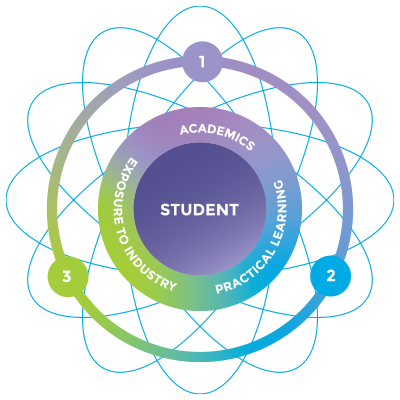
Foundational instruction from the parent institution
Hands-on individual and group exercises, presentations and projects
- Interactive Sessions with Industry Role Models and Seasoned Professionals
We are excited to see the impact of this model, with our students gaining admission to university to pursue undergraduate and master degrees in fields such as civil and mechanical engineering, computer science, bioinformatics, and so on. We strongly believe that replicating this model broadly will help to overcome some of the limitations faced by students attending poorly resourced public schools.
We had an engaging fourth quarter with a lot of positive progress reports from our past students. Adwoa (19), Abigail (19), and Aisha (17), who attended our 2017 STEM Camps in Accra, were accepted into the University of Edinburgh to study computer science. Rachael (22), a 2014 scholarship recipient graduated at the top of her class with a Magna cum laude Bachelor of Science degree awarded by Lead City University. Edna (19), a 2016 scholarship recipient studying Electrical Engineering at Ashesi University was recognized for her community service project which created a reading clinic for primary school students, and led a breast cancer and diabetes awareness campaign.
We hope you enjoy reading about our students’ activities during Q4.
Warm Regards,
Ladé
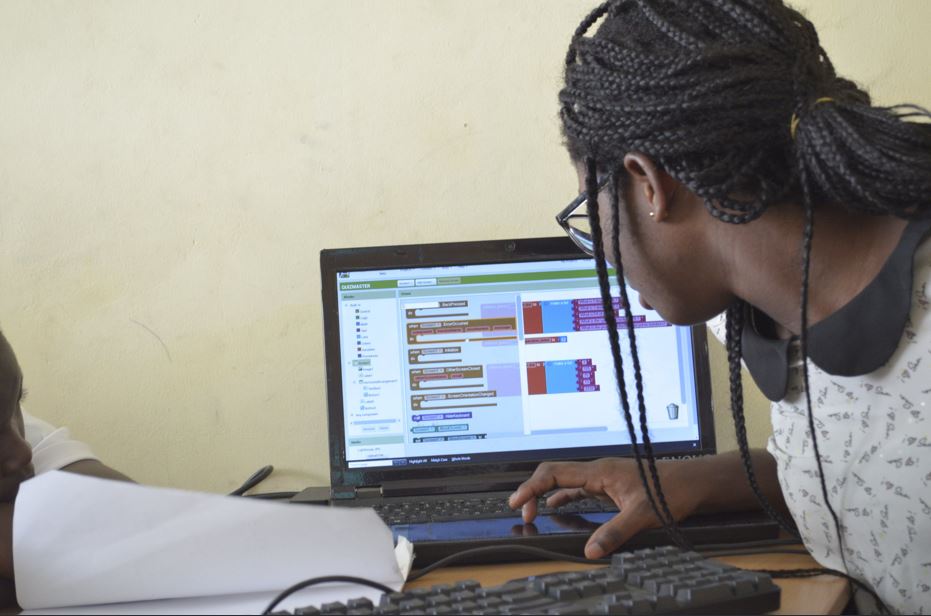
Rosemond at the Accra STEM Camp
ACCRA STEM CAMP STUDENTS PURSUE COMPUTER SCIENCE AND ENGINEERING DEGREES AT THE UNIVERSITY OF EDINBURGHH AND ASHESI UNIVERSITY
Students who participated in the Visiola Foundation’s STEM Camp in Accra in December 2017 are now pursuing Computer Science and Engineering degrees at Ashesi University in Ghana and at the University of Edinburgh in Scotland.
The girls developed a profound interest in the STEM fields at the camp, where they were introduced to computer programming, mobile application development and robotics, while being mentored by STEM professionals.
Adwoa, Abigail, and Aisha are pursuing computer science degrees at the University of Edinburgh while Rosemond, Vera, and Wendinoda are studying at Ashesi University. Abigail was pleased with the exposure and mentorship she received during the STEM camp in Accra. “I learned to code and build mobile applications. This motivated me further to learn computer science and programming so I can build technology products that will make the world a better place.”
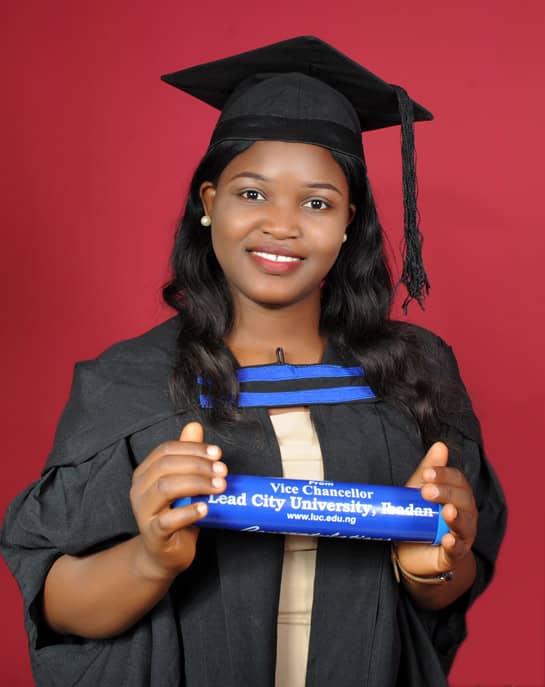
Rachael Asaolu | CGPA: 4.82/5.0
RACHAEL ASAOLU GRADUATES WITH A FIRST CLASS BSc IN BIOCHEMISTRY
Rachael (22) a 2014 scholarship recipient was awarded a First Class Magna cum laude Bachelor of Science Degree in Biochemistry as the best graduating student from Lead City University. She shares her life story and future aspirations below.
My future was never certain since I come from a financially disadvantaged family. I am the third of four children. I am the second university graduate and my family is the first generation to attend university. My older sister was determined to attend university so she struggled to pay her fees by cooking, cleaning, and running errands for people. My father is a carpenter and my mother works as a house keeper. At a point in my life, my father had an accident and due to this he stopped working. Things were really difficult for us. You should imagine a family that feeds from hand to mouth that is the type of family I come from. Sometimes we go to bed without eating anything. But I was very determined and devoted to my academics. I have never allowed the challenges that I face to stop me from always aiming for the best results.
Eventually for me, I read about the Visiola Foundation in a newspaper. I got a full academic undergraduate scholarship from the foundation after applying. I thought I would not be able to further my education because my family only depends on the little my mother earns. The Visiola Foundation paid my tuition fees, accommodation, feeding, and medical insurance. They mentored me and provided me with the opportunity to meet different scientists and successful people in the STEM fields. The Foundation took me to Dakar, Senegal to attend the Next Einstein Forum in March 2016. It was actually my first time on an aeroplane. I met a lot of great scientists that are doing well in STEM and I told myself that one day I will stand in front of
many people and showcase my work in my chosen field. The Foundation taught me something unique about my field, and has pushed me to discover more about my capabilities and also realise my potential. I was privileged to be one of the facilitators at the annual STEM Summer Camp for teenage girls. In addition, my friend and joint scholarship recipient, Omolara Kassim and I implemented a community project which aims at teaching STEM and mentoring public secondary school students and this helped me develop my leadership skills. I have been transformed from a downtrodden shy girl into a confident woman. My passion to save lives prompted my academic choice of biochemistry. I want to find the cures for many diseases, especially cancer. My interest in the management of diseases skyrocketed the very day I read in a newspaper about the prevalence of cancer in the world. I found out that there is no cure for cancer, and it remains a serious problem despite great progresses in cancer research. The World Health Organisation claims that cancer is a common disease that claims the life of about 7 – 10 million people annually. As a result of this, cancer remains a great medical challenge worldwide. At that point, I became determined to find a means to drastically reduce the prevalence of this deadly condition, thereby saving lives of millions of people that hitherto die because of this ailment. My undergraduate studies at Lead City University, have given me a solid foundation in biochemistry. I learnt the processes of the central dogma of molecular biology where genetics replicates into daughter cells, transcribes into messenger ribonucleic acid and translates into proteins. This process is very interesting, especially the mutation that occurs due to the malfunctioning of DNA replication and through other sources such as radiation, and mutagenic chemicals, this can lead to the formation of many diseases. During my mandatory industrial training at the University College Hospital, I was exposed to some medical laboratory equipment and skills required in carrying out medical tests, and how a typical research environment functions.
I would like to pursue a Masters in Bioinformatics and a PhD in Cancer bioinformatics. I would also like to work on finding therapies and drugs according to the specificities of diseases. I want to be a high profile researcher in the field of bioinformatics. I recently obtained admission to the University of Manchester and I am applying for scholarships to enable me to complete this next phase.
One of the important lessons I have learnt along the way is that “I should never give up.” No matter how the situation looks, I have realised that giving up is not the best option but I should keep pushing and should keep trying hard. There is always a light at the end of every tunnel. Thomas Edison once said, “Many of life’s failures are people who did not realize how close they were to success when they gave up.” I also learnt that, “A dream doesn’t become reality through magic; it takes sweat, determination and hard work” (Colin Powell). If you want to succeed in life you have to work hard and go through a process.
Thank you for investing in me!
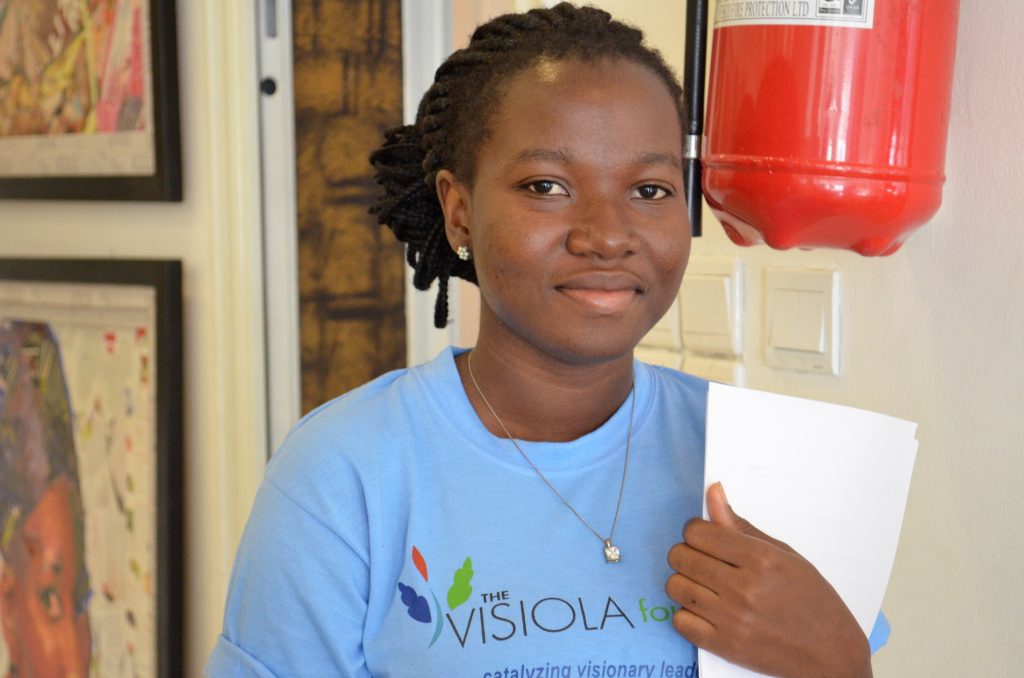
Edna Yelipoie
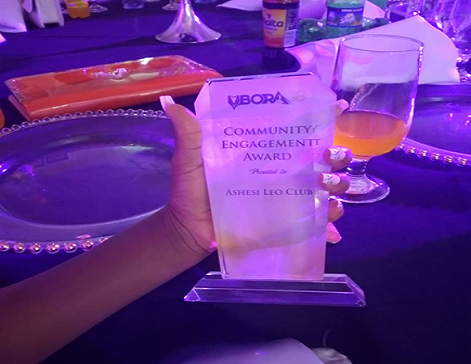
EDNA’S COMMUNITY SERVICE PROJECT WINS CAMPUS IMPACT AWARD
“Without community service, we would not have a strong quality of life” says Edna. This semester has been my most active in community engagement and it has been my most rewarding experience yet and made me realise the truth in the saying “the best way to find yourself is to lose yourself in the service of others.”
I joined the LEO community project team on campus whose goal is to provide the youth with opportunities to contribute to the development of their communities, meet humanitarian needs, encourage peace, and promote understanding both locally and nationally while developing leadership qualities. As part of the club, I organized a reading clinic for primary school students, and led a breast cancer and diabetes awareness campaign in the Berekuso community.
These were wonderful experiences as I had the opportunity to assist students to acquire basic reading
and writing skills. I also acquired knowledge on diabetes and breast cancer and shared the information with people in the community. I realized that the little things you do for people matter most and their development and happiness was a complete joy to behold. Our community project activities were recognized and honoured by the Campus Impact Award (an award to a student or student group that has, in the past year demonstrated a commitment to serving others outside the Ashesi Community) during the annual Excellence Awards night at Ashesi University.
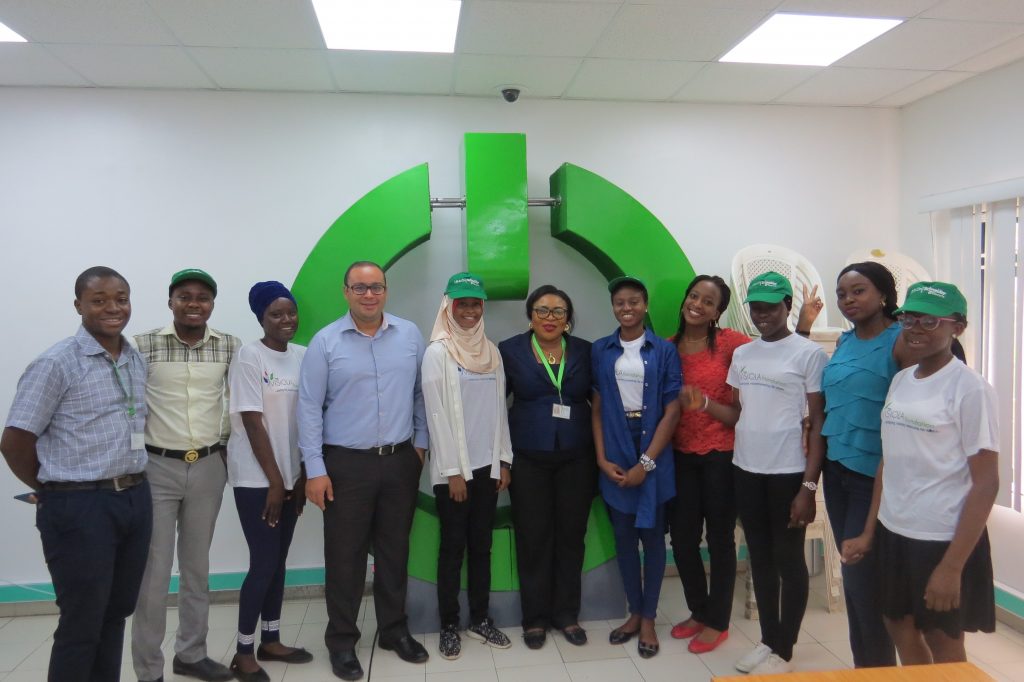
Discovery Tour at Schneider Electric
STEM GIRLS VISIT SCHNEIDER ELECTRIC’S FACILITY ON A 2-DAY DISCOVERY TOUR
The winners of the 2018 STEM Summer Camp competition on renewable energy and solar power in August 2018 were invited to a two-day discovery tour of Schneider Electric’s office in Lagos. The trip was educational and provided the students with a deeper understanding of the company’s operations, technology, its staff,and manufacturing processes.
The students had an insightful session on Schneider Electric’s EcoStruxure, an IoT-enabled architecture and platform developed to replace current infrastructure models by digitally transforming energy management and automation in homes, buildings, data centres, and industries.
They also embarked on an industrial excursion to one of Schneider Electric’s partner factories where they observed various manufacturing processes including the production of solar panels and engine enclosures. The team further discussed the engineering process involved in building their winning project – a robotic trash collector and sorter.
The students benefited from mentoring sessions with women in the STEM fields and career development talks that equipped them with CV preparation, interviewing skills and other soft skills required for employability.
The Foundation partnered with Schneider Electric for the 2018 STEM Summer camp themed “Solar Power for Nigeria” to expose students to the diverse solar power options available, while helping them to reflect on how to harness this potential for the nation’s economic growth and development.
Our STEM Summer camps provide students with valuable critical thinking skills, problem solving and teamwork as students are engaged in classroom course work, practical team activities and projects. Students learn to view the world through the lens of the STEM subjects and realize that careers in the science, technology, engineering, and mathematics fields are within their reach and that they can attain this with hard work and diligence.
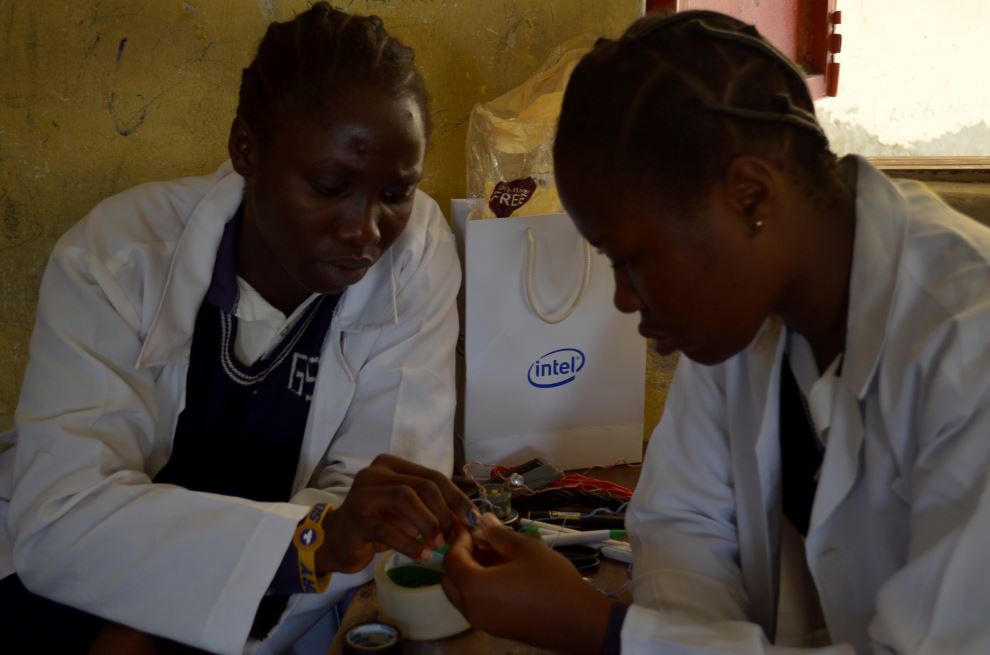
STEM Girls Develop Vibrating Pen
GIRLS DEVELOP A VIBRATING PEN TO AID PATIENTS WITH ESSENTIAL TREMOR
Girls in our After School STEM clubs passionate about healthcare and helping patients teamed up to develop a heavy-weighted vibrating pen for patients with nerve disorder diseases such as essential tremor. They discuss their solution below.
“Can a heavy weighted vibrating pen help reduce the symptoms of essential tremor and aid easy writing?
Essential tremor is a common neurological disorder affecting adults. It is likely caused by a disruption in the normal functioning of the cerebellum. People with essential tremor experience frequent shaking. The shaking cannot be controlled and most often occur in the hands, arms, head and vocal cords.
We decided to replace lighter objects with heavier ones to help stabilize the essential tremor. We came up with a self-stabilizing heavy weighted vibrating pen to make writing easier for patients living with essential tremor.
Features of this pen includes added weight and vibration. This encourages support from larger muscles in the arm and reduces the burden on the smaller and more sensitive muscles such as those in the hands. The calculated weight also helps the pen naturally rest in the hand without needing downward pressure for it to successfully write legibly and with ease.
did you know
The number of households in Africa with access to a computer increased in to 9.2% in 2018 from 3.6% in 2005.
79.6% of the population in Europe use internet, 69.6% in America and only 24.4% in Africa.
Africa spends between $US40 billion to $US50 billion yearly on imported agricultural products.
Only 16% of sub-Saharan Africa’s roads are paved, yet upgrading tose road networks could boost yearly trade by $US250 billion a year, while costing onlu $US38 billion.
A one year increase in average tertiary education levels would raise annual GDP growth by 0.39 percentage points, and eventually lead to a 12% increase in GDP.
Sub-Saharan Africa cureently accounts for only 1.2% of global agriculture production, amounting to 0.6 million tonnes.
90% of the agricultural output in Africa is produced by smallholder farmers on farms averaging 2.5 hectares in size. Commercial farms produce the other 10%.
In sub-Saharan Africa 7 out of 10 people are farmers. And yet, Africa collectively spends about $US50 million a year importing food.
Only around 5% of cultivated land in Adrica is irrigated, compared to 41% in Asia. Yet irrigation alone could increase output by up to 50% in Africa.
Source: UNESCO, UN.ORG, AGRA, World Bank, FAO
